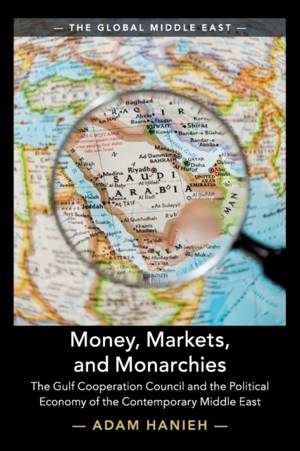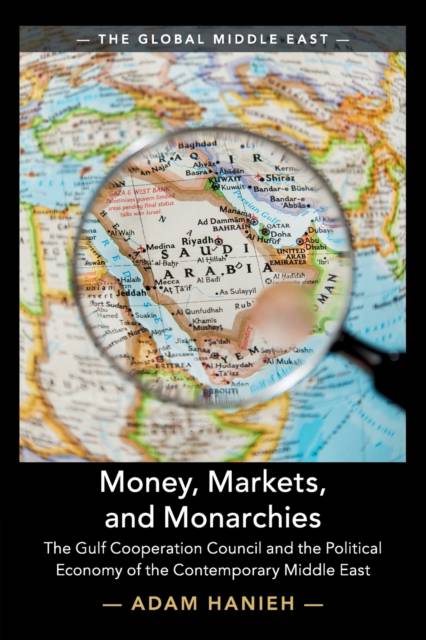
- Afhalen na 1 uur in een winkel met voorraad
- Gratis thuislevering in België vanaf € 30
- Ruim aanbod met 7 miljoen producten
- Afhalen na 1 uur in een winkel met voorraad
- Gratis thuislevering in België vanaf € 30
- Ruim aanbod met 7 miljoen producten
Zoeken
Money, Markets, and Monarchies
The Gulf Cooperation Council and the Political Economy of the Contemporary Middle East
Adam Hanieh
€ 33,95
+ 67 punten
Uitvoering
Omschrijving
Framed by a critical analysis of global capitalism, this book examines how the six states of the Gulf Cooperation Council are powerfully shaping the political economy of the wider Middle East. Through unprecedented and fine-grained empirical research - encompassing sectors such as agribusiness, real estate, finance, retail, telecommunications, and urban utilities - Adam Hanieh lays out the pivotal role of the Gulf in the affairs of other Arab states. This vital but little recognised feature of the Middle East's political economy is essential to understanding contemporary regional dynamics, not least of which is the emergence of significant internal tensions within the Gulf itself. Bringing fresh insights and a novel interdisciplinary approach to debates across political economy, critical geography, and Middle East studies, this book fills an important gap in how we understand the region and its place in the global order.
Specificaties
Betrokkenen
- Auteur(s):
- Uitgeverij:
Inhoud
- Aantal bladzijden:
- 314
- Taal:
- Engels
- Reeks:
- Reeksnummer:
- nr. 4
Eigenschappen
- Productcode (EAN):
- 9781108453158
- Verschijningsdatum:
- 1/11/2018
- Uitvoering:
- Paperback
- Formaat:
- Trade paperback (VS)
- Afmetingen:
- 178 mm x 217 mm
- Gewicht:
- 508 g

Alleen bij Standaard Boekhandel
+ 67 punten op je klantenkaart van Standaard Boekhandel
Beoordelingen
We publiceren alleen reviews die voldoen aan de voorwaarden voor reviews. Bekijk onze voorwaarden voor reviews.











